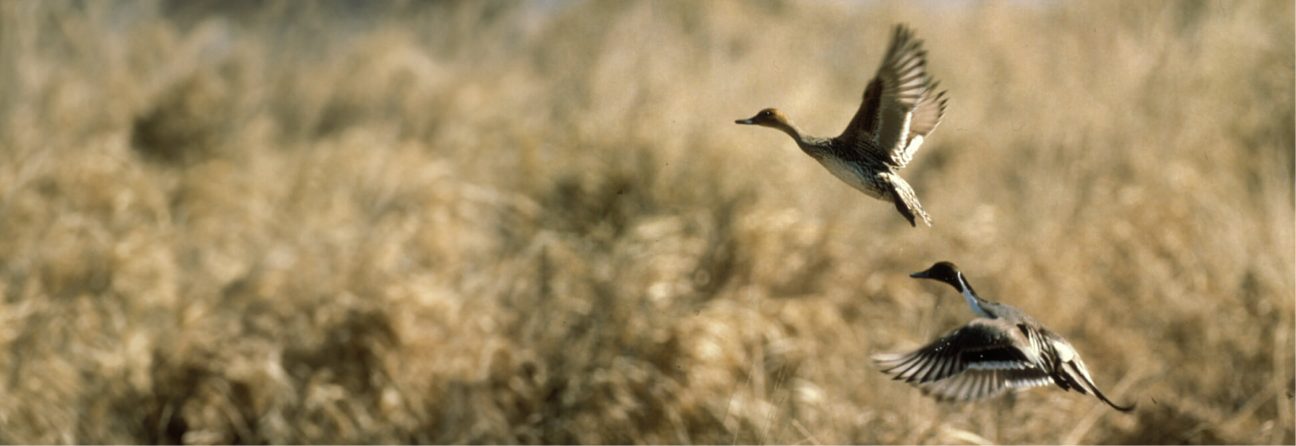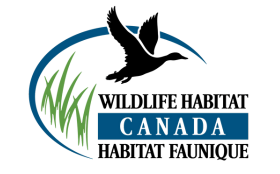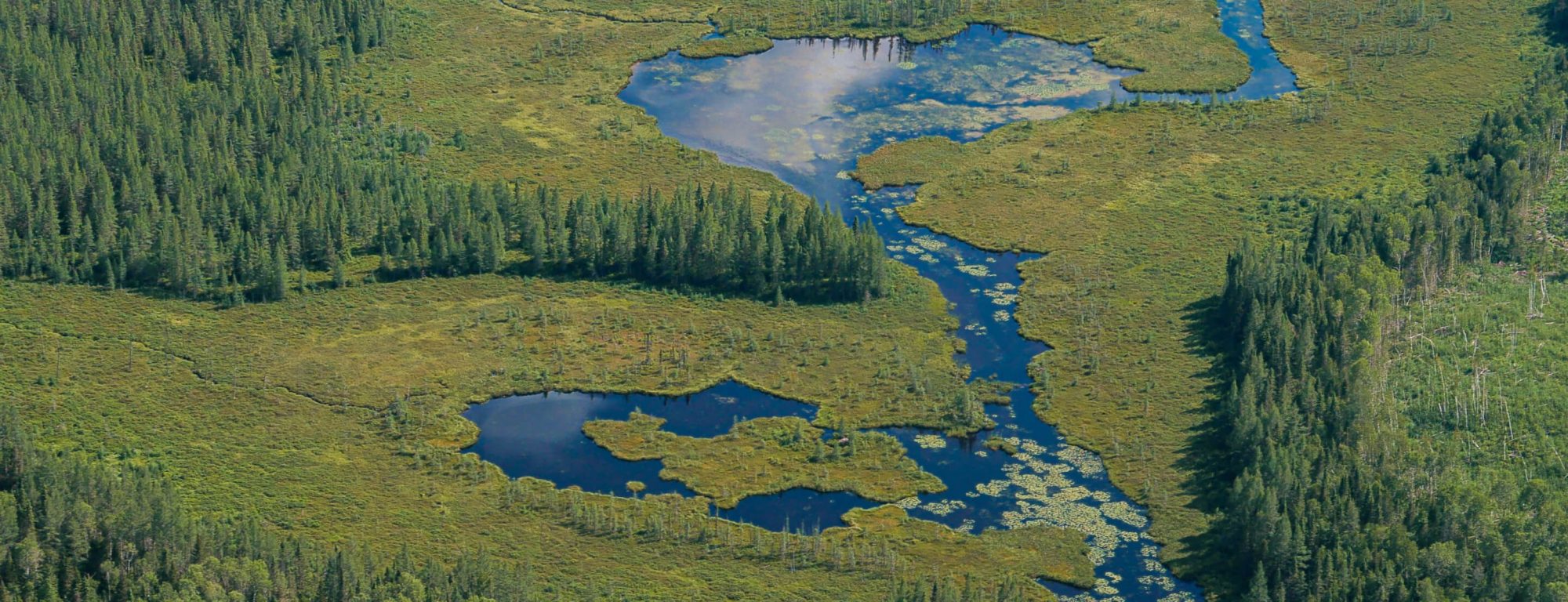GRANTS
Canadian Wildlife Habitat Conservation Stamp Program
The application period for the 2026-2027 grant year is closed
Wildlife Habitat Canada invests funds from the sale of the Canadian Wildlife Habitat Conservation Stamp and Print (CWHS) program to fund important and relevant conservation projects all over Canada.
What’s more, our matching funds component ensures that every dollar WHC invests is met with additional non-federal government backing. As a result, the projects we support are crucial to Canadian conservation initiatives and have provided roughly $150 million towards the cause.
The WHC mandate is to support applications that:
- are relevant under the North American Waterfowl Management Plan (NAWMP);
- positively impact regional and local habitats of other migratory game birds;
- consider the Newfoundland and Labrador Murre Conservation Fund.
WHC recognizes the importance of projects involving habitat conservation, restoration and enhancement for other wildlife (i.e. other than migratory game birds) and fish; however, these types of projects are not eligible for funding consideration under the Contribution Agreement between Environment and Climate Change Canada and Wildlife Habitat Canada.
Applicants
July 18, 2025
April 1, 2026 to March 31, 2027
October 3, 2025
(*funding from Government of Canada programs cannot be considered as match)
Eligible Recipients of the Grant Program are:
- Canadian Residents;
- Not-for-profit Organizations;
- Indigenous organizations, associations, and wildlife management boards;
- Research, academic, and educational institutions;
- For profit organizations such as small businesses, companies, corporations, and industry associations;
- Local organizations such as community associations and groups, seniors’ and youth groups, and service clubs;
- Provincial, territorial, municipal, and local governments and their agencies.
Ineligible Recipients of the Grant Program include but are not limited to:
- International organizations or individuals;
- Federal level organizations or individuals: Government employees, departments, agencies, and crown corporations.
All grant applications undergo a review process by the WHC Board of Directors, WHC Staff and an External Review Panel of conservation experts. Please read the grant review criteria before completing your application.
Stamp Grant – Application Review Criteria
The following guidelines are also taken into account upon review:
- Projects that contribute to an equitable geographic distribution of WHC support across Canada.
- The involvement of multiple funding partners.
- Assurance that WHC funds will be used for project-related activities within the specified fiscal time-frame.
- No single partner will receive more than 20% of the total available WHC grant funding in a given year.
Projects that emphasize the following will be prioritized by the Board of Directors:
- Support of the waterfowl hunting community’s role and contribution to wildlife and habitat conservation.
- Promotion and advocacy of the importance of wildlife habitat conservation in Canada.
- Lasting and long-term impacts on conservation.
- Support of priority activities under the North American Waterfowl Management Plan (NAWMP).
- Regional and local habitat projects of importance to other migratory game birds.
- The Newfoundland and Labrador Murre Conservation Fund.
WHC Stamp Grant Program Guidelines
- Project implementation must comply with all relevant legislation, regulations, licenses, permits, etc.
- Projects must be carried out between April 1st of the granting year and March 31st of the subsequent year. If approved, WHC grant funds must be spent within the designated fiscal year.
- A minimum 1:1 funding match ratio* must clearly be demonstrated in the application. WHC contributions cannot exceed 50% of the project costs. *Please note that funding from Government of Canada programs cannot be considered as match.
- Cash and in-kind contributions must be confirmed with signed letters from the supporting partner. Letters to accompany the grant application form. Should funding sources be anticipated but not confirmed at the time of application, please indicate clearly in the Financial Summary section of the grant application form.
- The following activities are not eligible for grant funding from WHC:
- Expenditures directly related to the acquisition of land or an interest in land, including a lease, conservation easement or conservation covenant;
- A contribution to an endowment fund.
- Education, Awareness, Research, and Control
- WHC will consider projects with activities that address invasive alien species (IAS) in accordance with the following guidelines:

To be eligible for funding, projects with IAS components must clearly demonstrate the eligibility of their activities based on the guidelines provided in the table above.
The focus will be on education and awareness, research, and long term, best practice eradication of IAS, for the future of conservation practices for wetlands/waterfowl/habitat.
*Education/awareness projects such as workshops, seminars, and public outreach initiatives.
*Demo site includes projects such as implementation of proven scientific methods in a practical setting.
*Research projects that promote new and innovative scientific methods to further knowledge on IAS.
*Initial Control projects such as early action into the invasive cycle for new found IAS sites.
*Maintenance projects such as maintaining the reduction of existing levels of IAS, without eradication in mind.
Embracing diversity, for both ecosystems and Canadian organizations, is a core value at Wildlife Habitat Canada (WHC). As we recognize the need for increased inclusion and diversity in all aspects of wildlife conservation and management, WHC is committed to supporting projects from groups with diverse and inclusive goals and objectives for the 2026-2027 grant program.
Eligibility Requirements for these projects:
- Must be carried out between April 1, 2026 – March 31, 2027. If approved, WHC grant funds must be spent within the 2026-2027 fiscal year.
- Must have clear milestones & deliverables and a minimum of 1:1 match (Non-federal funds).
- Projects are required to be related to NAWMP (wetlands, waterfowl and migratory game birds) and must fall within the scope of our regularly schedule grant
programming (See Grant Categories Page 11 – 14 for more details) - Within the Application, self-identify and demonstrate clearly how your organization or project will be providing improvements to diversity, equity and inclusion within the community of Canada.
For more information on Diversity and Inclusion, please visit www.ccdi.ca
Grant Categories
The WHC grant program has four categories of funding, each of which is directed to projects that support different areas of conservation. To apply for a grant, click on the links from the designated category.
Habitat Conservation, Restoration or Enhancement Projects
Projects under this category focus on direct, on-the-ground activities that:
- address North American Waterfowl Management Plan (NAWMP) conservation priorities, as outlined in the Habitat Joint Venture Implementation Plans, including conservation, restoration, protection and enhancement of habitat in priority areas; or
- support habitat conservation for other important migratory game birds.
Examples of project activities that would fall under this grant category:
- creation, restoration or enhancement of wetland habitat;
- natural vegetation planting;
- construction and installation of Hen Houses or nest boxes;
- installation of livestock exclusion fencing;
- removal of invasive species;
- wetland inventory mapping.
Restrictions and guidelines For infrastructure repair / re-build projects (e.g., water level control structure repairs or replacement), WHC will consider projects that:
- increase wetland acres and/or improve the ecological integrity of affected acres; and,
- address long term maintenance needs for infrastructure (which do not rely on any future WHC funding).
Projects under this category focus on furthering the understanding of waterfowl and/or habitat conservation in priority areas or the NAWMP human dimensions component. Examples of research projects that have received grant funding in the past:
- Long Point Waterfowl’s Lake St. Clair Initiative: Habitat Selection and Survival of American Black Ducks and Mallards during Autumn-Winter;
- Assessing the ecological influences on the efficacy of benthic barriers to control yellow flag iris in high priority waterfowl habitats across British Columbia;
- Understanding the dynamics of people’s interactions with waterfowl: Assessing hunter’s preferences for waterfowl management in Canada.
Restrictions and Guidelines To be considered for funding, Research projects:
- require a letter of support from the scientific or technical committee of the associated North American Waterfowl Management Plan Habitat (or Species) Joint Venture in Canada. This letter of support must be attached to the application form when it is submitted to WHC.
- applying for a grant through an academic institution, such as a college or university, must:
- contact WHC before submitting the application if the academic institution requires an overhead expense be charged against the requested WHC grant funds;
- ensure that the appropriate academic institution administrative office has reviewed the draft WHC Letter of Agreement before the application is submitted. If the grant application is successful, the academic institution will be expected to enter into an agreement substantially in accordance with the draft, as a requirement of grant eligibility; and,
- provide a letter from the administrative office confirming that the draft WHC Letter of Agreement has been reviewed, including any comments or changes that may need to be considered if the grant application is successful. This letter must be attached to the application form when it is submitted to WHC.
Wetland Education, Hunter Education, Hunter Recruitment projects Projects under this category address the NAWMP goals and priorities of the human dimensions component, “Growing numbers of waterfowl hunters, other conservationists and citizens who enjoy and actively support waterfowl and wetlands habitat conservation” This Includes:
- wetland educational programs/workshops;
- waterfowl hunter education and/or recruitment programs/workshops;
- projects that advance regional or national stewardship.
Examples of project activities that would fall under this category:
- Promoting waterfowl hunting and wetland conservation at events (Provincial hunting days);
- Mentored waterfowl hunts/introduction to waterfowl hunting;
- Public engagement in conservation activities/planning.
Restrictions and Guidelines
- Applications must clearly outline the curriculum of the project.
- Projects must include a follow up component (planned future activities) to demonstrate how the benefits of the program will be sustained in future years and to evaluate the success of the program (e.g., are new hunters continuing to actively hunt after the program?).
Projects under this category support Murre conservation activities and management, including those that:
- Assess Murre breeding populations, productivity, survival, harvests and other mortality factors;
- Facilitate Murre hunting stewardship and wildlife conservation to ensure that the Murre populations are sustained; or
- Involve other Murre habitat conservation activities and events.
Restrictions and Guidelines Grant applications under this category are reviewed by the NL Murre Conservation Fund Steering Committee, made up of representatives from Bird Studies Canada, the Government of Newfoundland and Labrador (Department of Environment and Conservation), and Wildlife Habitat Canada. A representative from the Atlantic Region of the Canadian Wildlife Service (Department of Environment and Climate Change) also provides technical information for the committee. To be considered for funding, NL Murre Conservation Fund projects applying for a grant through an academic institution, such as a college or university, must:
- contact WHC before submitting the application if the academic institution requires an overhead expense be charged against the requested NL Murre Conservation Fund grant funds.
- ensure that the appropriate academic institution administrative office has reviewed the draft WHC Letter of Agreement before the application is submitted. If the grant application is successful, the academic institution will be expected to enter into an agreement substantially in accordance with the draft, as a requirement of grant eligibility; and,
- provide a letter from the administrative office confirming that the draft WHC Letter of Agreement has been reviewed, including any comments or changes that may need to be considered if the grant application is successful. This letter must be attached to the application form when it is submitted to WHC.
NOTE: Newfoundland and Labrador Murre Conservation Fund projects are currently not eligible for multi-year grants.
Application Process
Environment and Climate Change Canada requires that all WHC grant applicants be advised of the reporting requirements found in the Grant Program Guidance Document prior to submitting an application. Our competitive grant program measures project results against established performance indicators to evaluate the effectiveness of the program.
Successful proponents are expected to enter into a signed agreement with WHC regarding the exchange of funds. All applicants are expected to review the draft Letter of Agreement prior to preparing and submitting an application.
- Call for Proposals: July 18, 2025
- Deadline for Applications: October 3, 2025
- Applications submitted for review to Board of Directors: late-January
- Decision Letters to Applicants: mid-February
- Project Dates: April 2026 to March 2027
- Reporting periods:
- Interim Reports due mid-September 2025
- Final Reports due mid-March 2026
We’re online!
- Application forms must be completed and submitted online.
- Applicants will be prompted first to create a username and password.
- You can add collaborators to your application if there are multiple people assisting you with your submission.
- You can save your work at any point in time.
The deadline to apply is October 3, 2025.
Note: Any application forms submitted to WHC by email or mail will not be considered.
The Joint Ventures
The Joint Ventures are partnerships that focus on areas or species of concern identified in the North American Waterfowl Management Plan. Each Joint Venture includes a range of partners from federal, provincial and local governments, to conservation organizations. Implementation and Strategic Plans form the basis for planning of programs and individual projects.
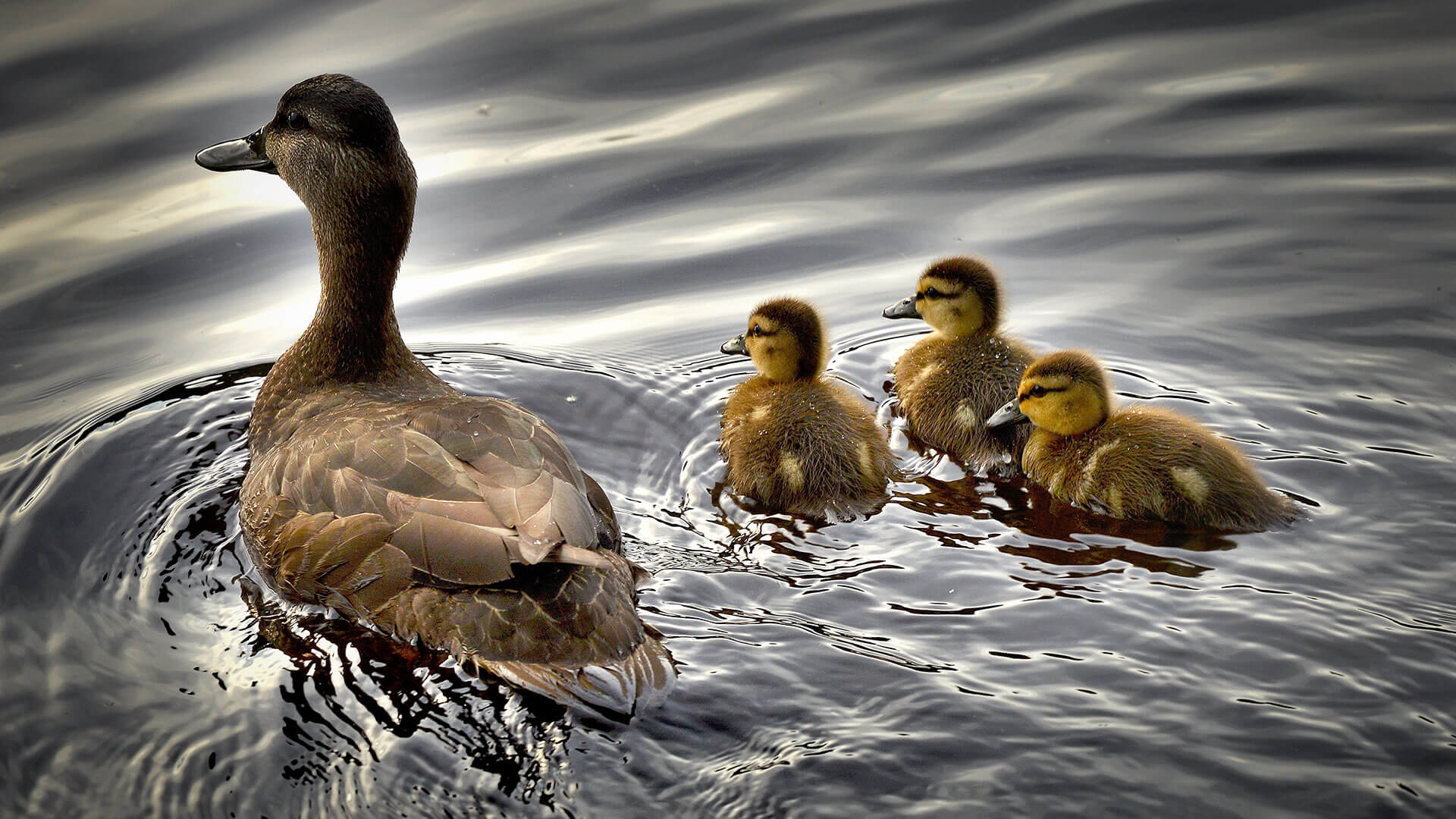
“The four Canadian (or Canadian portion of the four) Habitat Joint Ventures integrate planning, science, governance, partnerships, and management to achieve NAWMP goals in Canada through a programmatic approach. A science-based implementation plan is created to address local, regional and continental goals. Joint Venture partners actively research, monitor and evaluate waterfowl populations, and deliver habitat conservation programs at a regional level.” – View Source »
- Pacific Birds Habitat Joint Venture (PBJV)
- Canadian Intermountain Joint Venture (CIJV)
- Prairie Habitat Joint Venture (PHJV), includes Western Boreal Forest
- Eastern Habitat Joint Venture (EHJV)
View Canadian Habitat Joint Venture Implementation / Strategic Plans
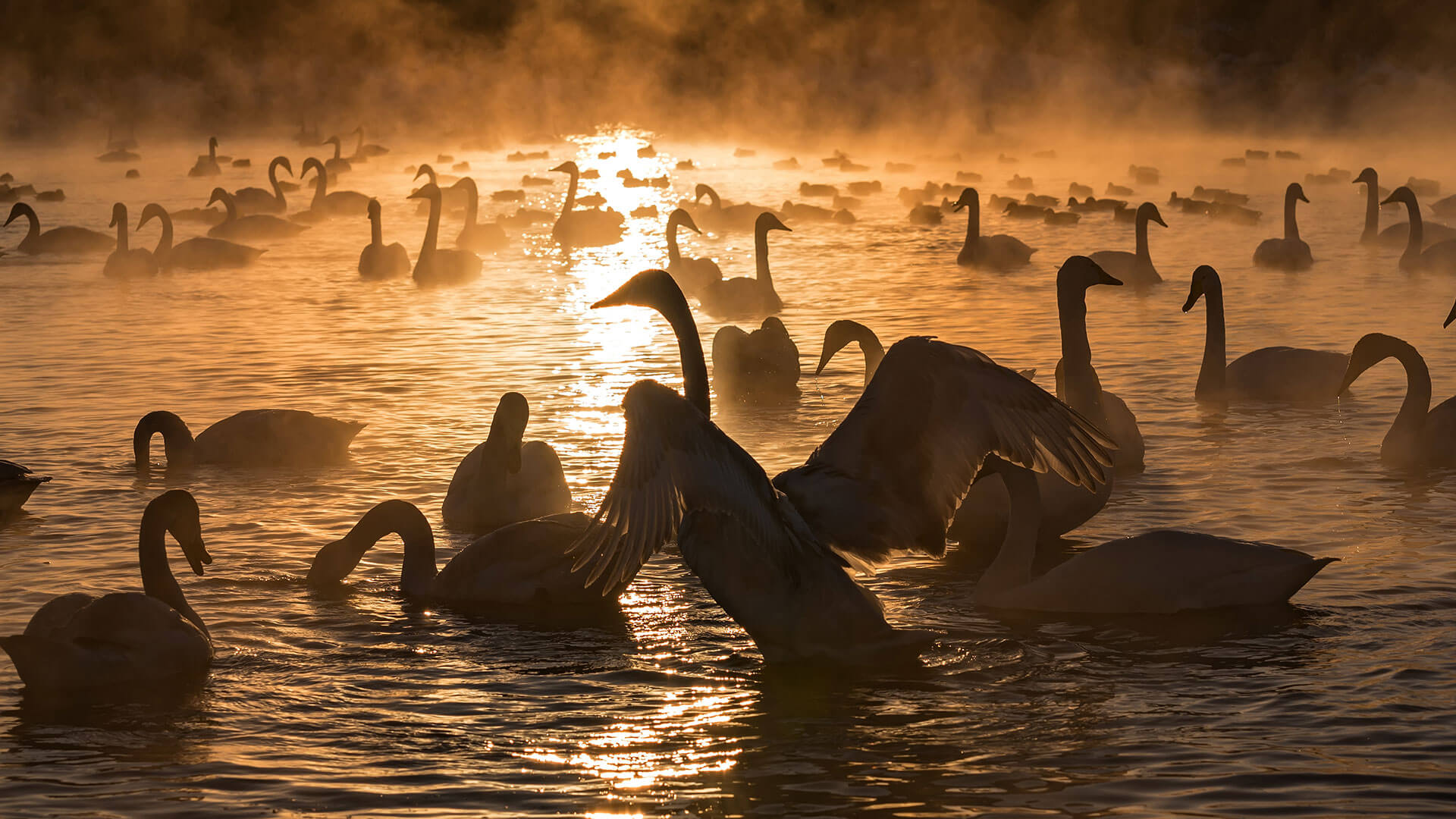
Species Joint Ventures are international in scope, spanning North America and including circumpolar countries. These joint ventures focus on critical science needs to inform the management of over 20 species (50+ populations) and their related habitats. Additionally, research directed through the species joint ventures addresses questions for other bird species that share the habitats.” – View Source »
Important Reference Document
Current Grantees
Click here for the list of the 2025-2026 Currently Funded Projects
- Call for Proposals: Closed
- Deadline for Applications: Closed
- Applications submitted for review to Board of Directors: Closed
- Decision Letters to Applicants: Closed
- Project Dates: April 1, 2025 to March 31, 2026
- Reporting periods:
- Interim Reports due: mid September, 2025
- Final Reports due: mid March, 2026
Stamp Grant recipients are required to complete an Interim Report as well as a Final report throughout the grant year. Both of these templates can be accessed through the online grant portal that is made available to all grantees.
2025-2026 REPORTING DEADLINES
- Interim Report: mid September, 2025
- Final Report: mid March, 2026
2024-2025 Grant Awardee Project Details
Stewardship Association of Municipalities Inc – Supporting Municipalities across Newfoundland and Labrador in their Stewardship and Conservation of Important Wildlife Habitat 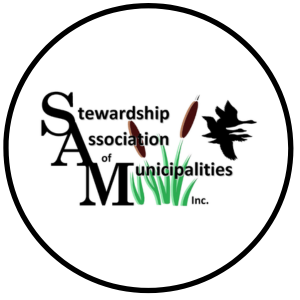
Project Accomplishments:
- Secured long-term habitat protection — Facilitated the signing and expansion of Municipal Habitat Stewardship Agreements conserving ~2,375 acres across St. John’s, Corner Brook, York Harbour, and Port Rexton in partnership with the NL Wildlife Division.
- Expanded municipal and public engagement — Delivered presentations, habitat assessments, and outreach in 22 municipalities, reaching 1,400+ participants and strengthening conservation awareness among councils and residents.
- Advanced education and stewardship — Hosted community and youth events like World Wetlands Day, RAMSAR celebrations, and bird counts, fostering a lasting conservation ethic and supporting future environmental leaders.
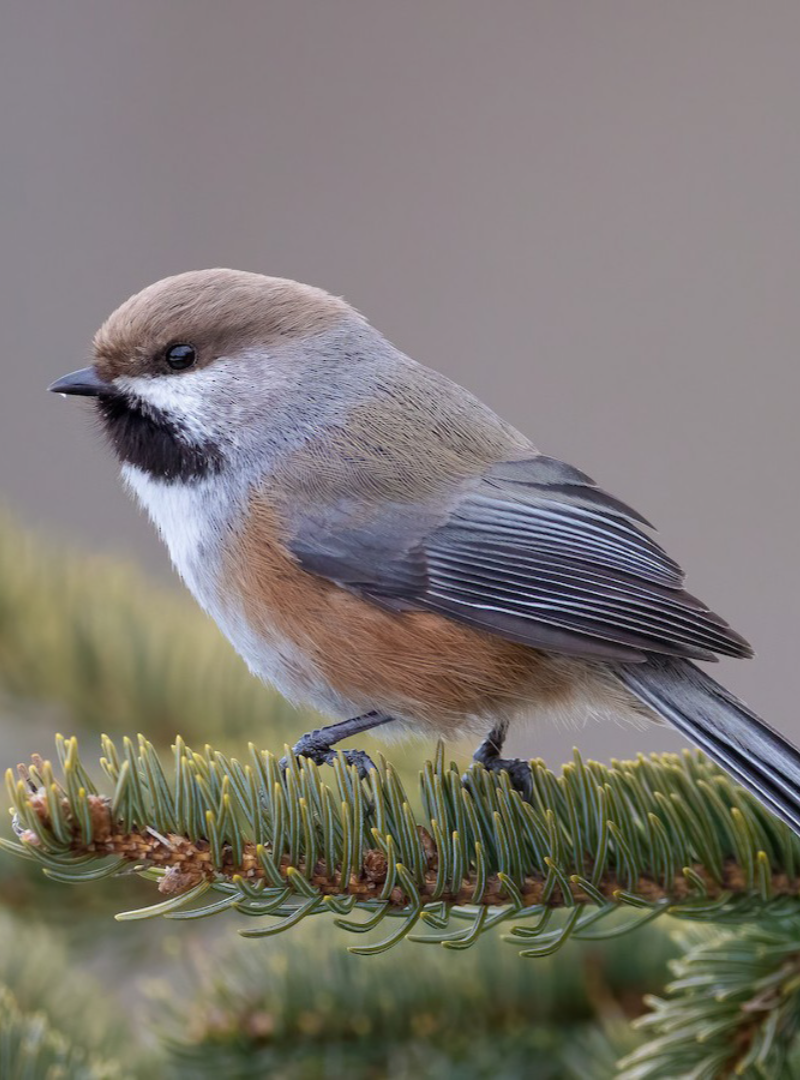
Manitoba Habitat Conservancy – Waterfowl Habitat Securement and Management Across Manitoba’s Prairie Potholes 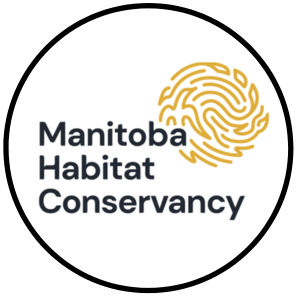
Project Accomplishments:
- Secured and enhanced key waterfowl habitat — Protected 160.8 acres under perpetual easement and 239 acres under 10-year agreements, exceeding goals by 284 acres thanks to WHC support.
- Expanded habitat restoration through Hen Houses — Installed 200 new and maintained 1,514 existing Hen Houses across Alberta, Saskatchewan, and Manitoba, enhancing over 1,500 acres of wetland habitat and supporting waterfowl breeding success.
- Strengthened outreach and stewardship — Engaged 3,200+ people, including 175 landowners, through conservation work and communications to promote long-term awareness and protection of Prairie Habitat Joint Venture landscapes.
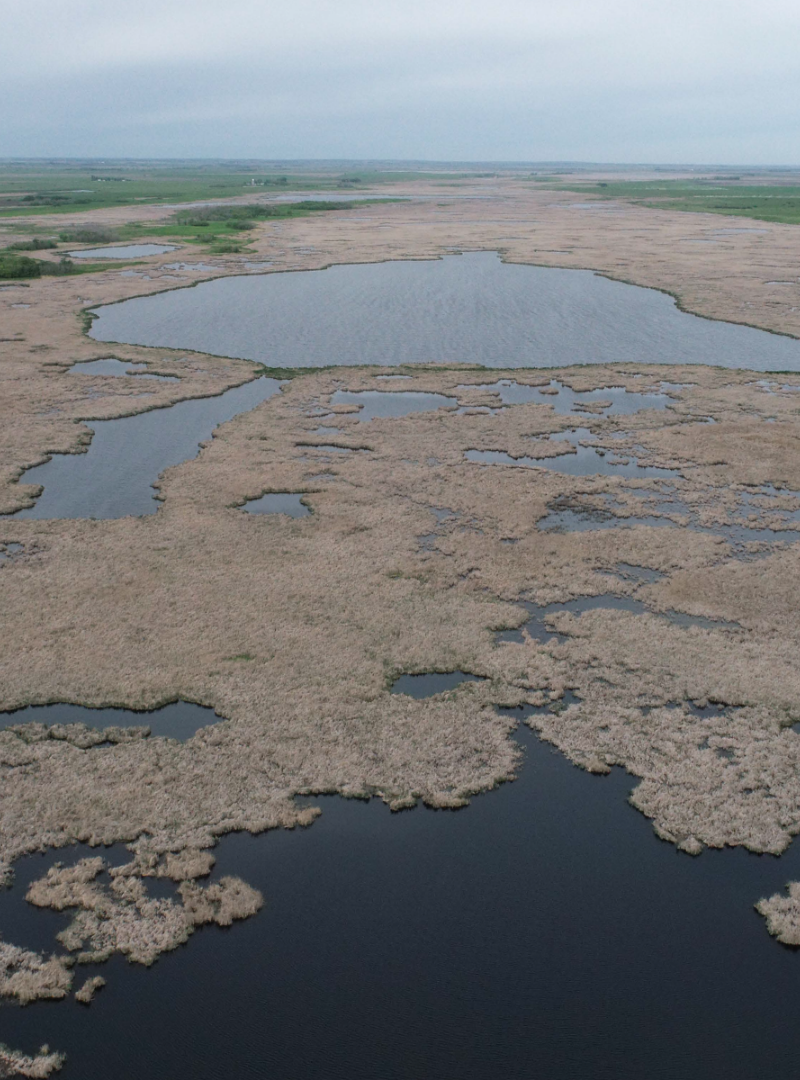
The Nature Trust of New Brunswick – Wetland Restoration within the EHJV Priority Aukpaque EcoDistrict 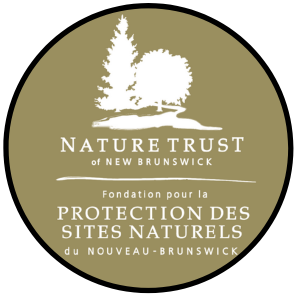
Project Accomplishments:
- Restored and enhanced key habitats — Successfully restored 580 acres of wetlands, 94 acres of riparian, and 12 acres of upland habitat, exceeding initial goals and improving ecosystem resilience for waterfowl and other species.
- Strengthened monitoring and stewardship — Conducted baseline bird surveys, installed solar-powered recording units, and engaged 45 volunteers and 400 local landholders in restoration and monitoring activities.
- Built long-term restoration capacity — Established a Restoration Working Group and developed a multi-year restoration plan covering 952 acres, creating a strong foundation for continued wetland conservation across New Brunswick.
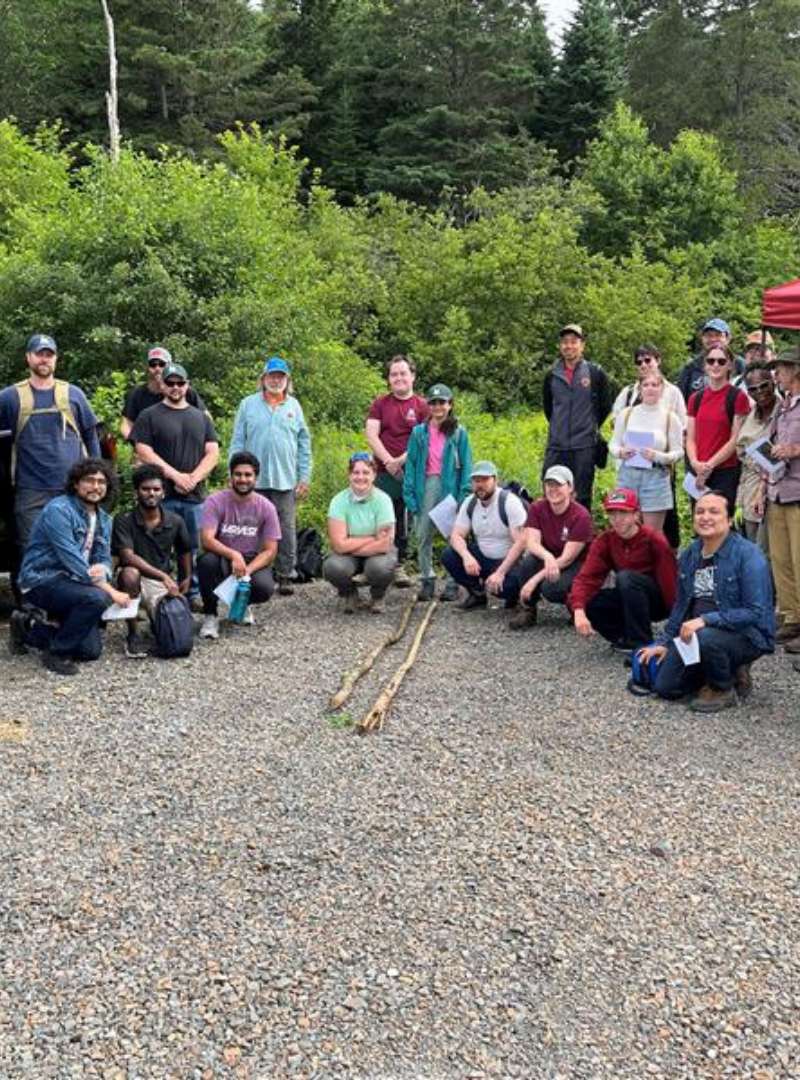
Department of Natural Resources and Renewables – Nova Scotia Eastern Habitat Joint Venture (NS-EHJV) Wetland Stewardship Program 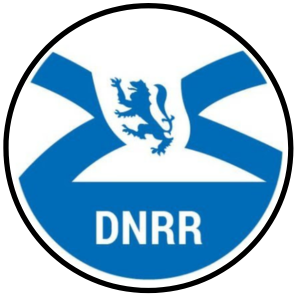
Project Accomplishments:
- Expanded community engagement and awareness — Hosted 6 Treasured Wetland events with 168 participants, gained 343 new followers and over 20,000 social media views, and engaged 310+ community members through outreach and geocaching activities.
- Advanced municipal wetland protection — Completed 15 wetland assessments across HRM, MODL, and New Glasgow, supported policy changes in MODL protecting 2,554 acres of coastal wetland and 2,169 acres of upland buffer, and strengthened municipal conservation planning.
- Supported agricultural biodiversity and partner training — Developed 10 Agricultural Biodiversity Plans covering 767 acres, trained multiple NGO partners to deliver consistent conservation planning with landowners across Nova Scotia.
Delta Waterfowl – Growth and management of the Hen House program in Canada 2024 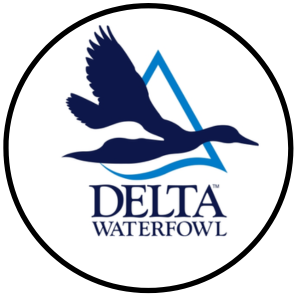
Project Accomplishments:
- Expanded Hen House program — Installed 200 new and maintained 2,400 existing Hen Houses, improving nesting success and supporting an estimated 5,460 additional mallards across key Prairie Pothole Region habitats.
- Secured critical habitat — Protected 228.2 acres of wetlands and uplands in Manitoba under perpetual conservation easements, safeguarding vital breeding grounds for waterfowl.
- Strengthened conservation partnerships — Collaborated with WHC, MHC, and U.S. state agencies to enhance long-term wetland management and ensure the sustainability of North America’s duck populations and hunting heritage.
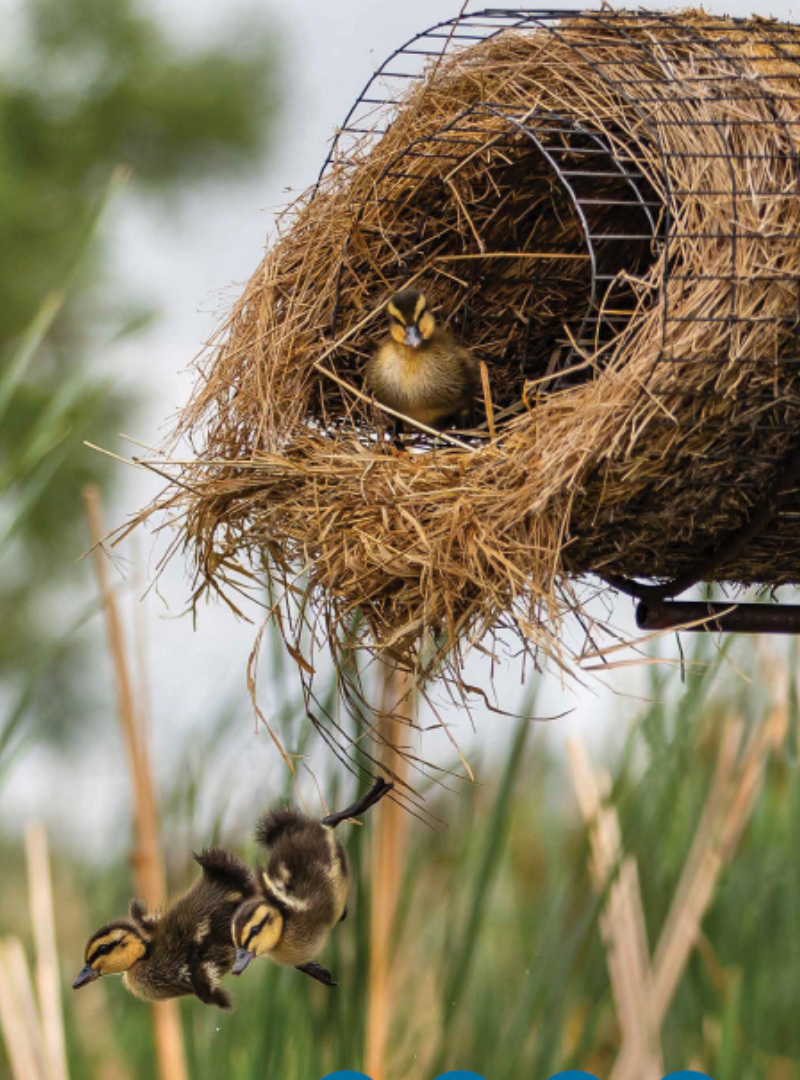
South Nation Conservation – Wetland Creation at the Two Creeks Forest Conservation Area 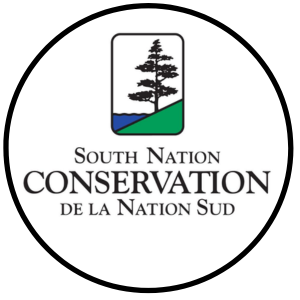
Project Accomplishments:
- Created new wetland habitat — Constructed two open-water wetland ponds totaling over 2 acres, introducing unique wetland features within a forested area now permanently conserved by South Nation Conservation.
- Enhanced recreation and education — Restored and rerouted 700m of public trails to improve access, offering year-round wildlife viewing opportunities for 3,400+ annual visitors.
- Improved climate resilience — Increased the area’s capacity for stormwater retention, flood mitigation, and drought resilience, benefiting both local ecosystems and trail infrastructure.
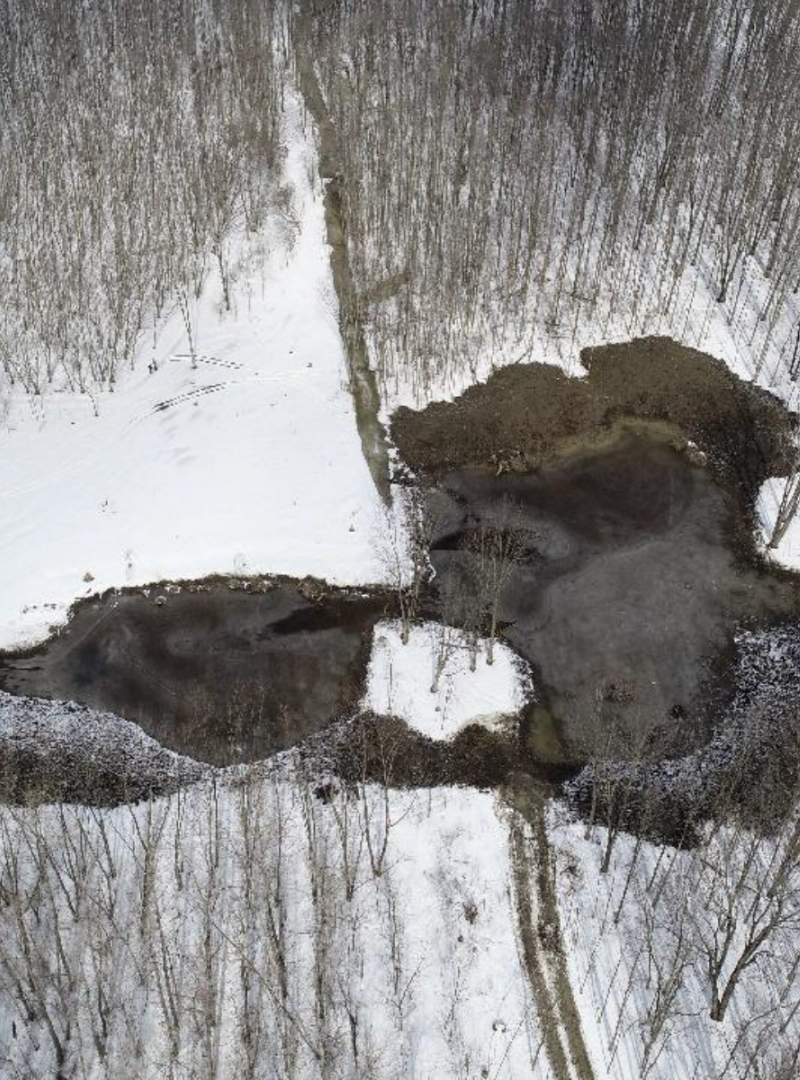
Glenn Collacutt – Elmsdale DU Echoes: Nurturing Nova Scotia’s Duck Habitats, One Box at a Time
Project Accomplishments:
- Enhanced waterfowl habitat — Installed 180 duck boxes across wetlands in Elmsdale, Truro, and Shubenacadie, providing new nesting sites for American Black Ducks and Mallards, with approximately 45% occupancy by spring 2025.
- Engaged community and youth — Hosted hands-on workshops where dozens of participants, including students, built and installed boxes, fostering local conservation awareness and long-term stewardship.
- Achieved strong conservation impact and partnerships — Leveraged $2,500 in WHC funding into a 12.94:1 match ratio, with continued landowner participation ensuring lasting protection for Nova Scotia’s wetland ecosystems.
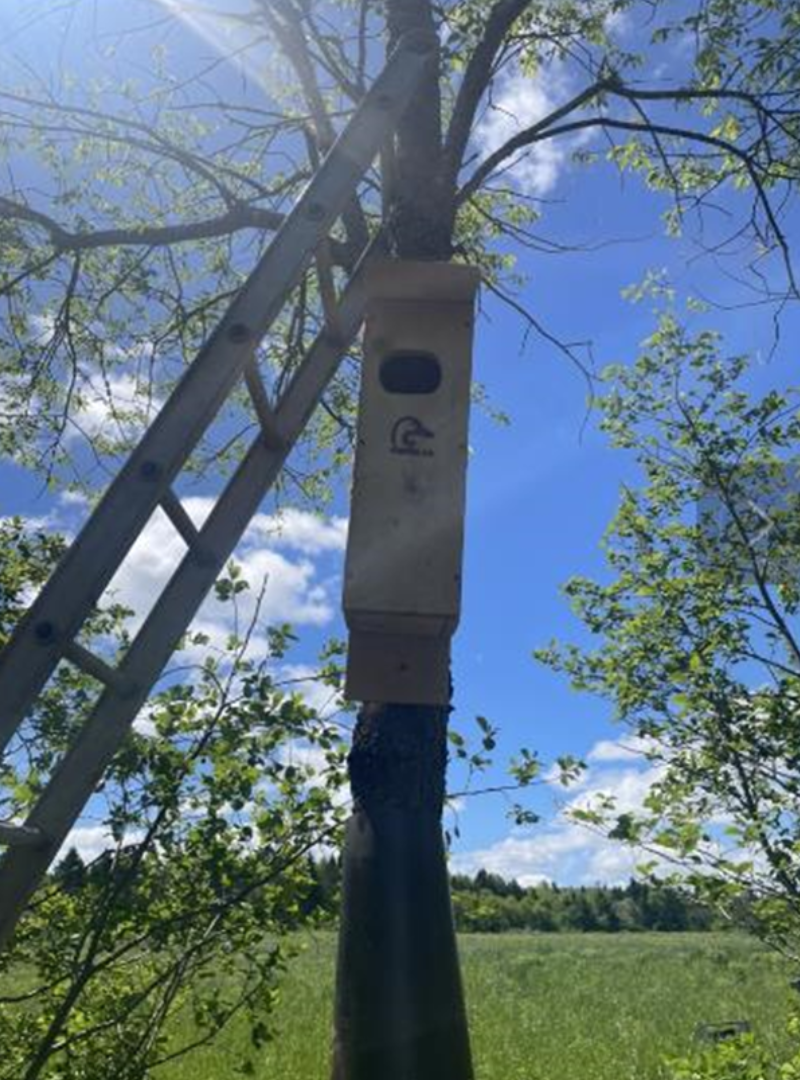
Stqeeye’ Learning Society – Xwaaqw’um Wetland Restoration Project 2024-27 
Project Accomplishments:
- Restored 8.15 acres of wetland habitat — Completed 12 new wetland pools within Xwaaqw’um Park in partnership with BC Parks, Cowichan Tribes, and Redd Fish Restoration Society, enhancing critical habitat for migratory birds, amphibians, and species at risk.
- Strengthened ecosystem resilience and biodiversity — Planted 3,500 native plants, 500 trees, and spread 10.5 kg of native seed, improving water storage, carbon sequestration, and wildlife habitat while removing over 1 km of invasive English Hawthorn.
- Expanded community and Indigenous stewardship — Engaged volunteers and specialists in biodiversity monitoring, BioBlitz surveys, and seed collection, integrating traditional ecological knowledge and scientific methods to guide long-term wetland and watershed management.

Delta Farmland and Wildlife Trust – Providing Migratory Waterfowl Habitat on Agricultural Land in the Fraser River Estuary using Cover Crops 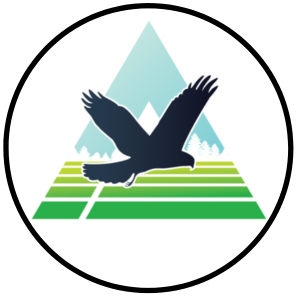
Project Accomplishments:
- Enhanced critical migratory bird habitat — Established 4,217 acres of winter cover crops across 200 farm fields in partnership with 24 farmers, including 566 acres directly supported by WHC, providing high-quality foraging and resting habitat for millions of waterfowl and shorebirds.
- Strengthened agricultural stewardship and conservation partnerships — Continued 30+ years of collaboration between farmers, DFWT, and wildlife agencies, promoting soil conservation and habitat enhancement through voluntary ecological stewardship.
- Monitored habitat use and ecosystem impact — Conducted weekly waterfowl and vegetation surveys across 193 fields, recording over 40,800 birds of 11 species, confirming strong use of cover-cropped fields and measurable benefits for migratory waterfowl populations.
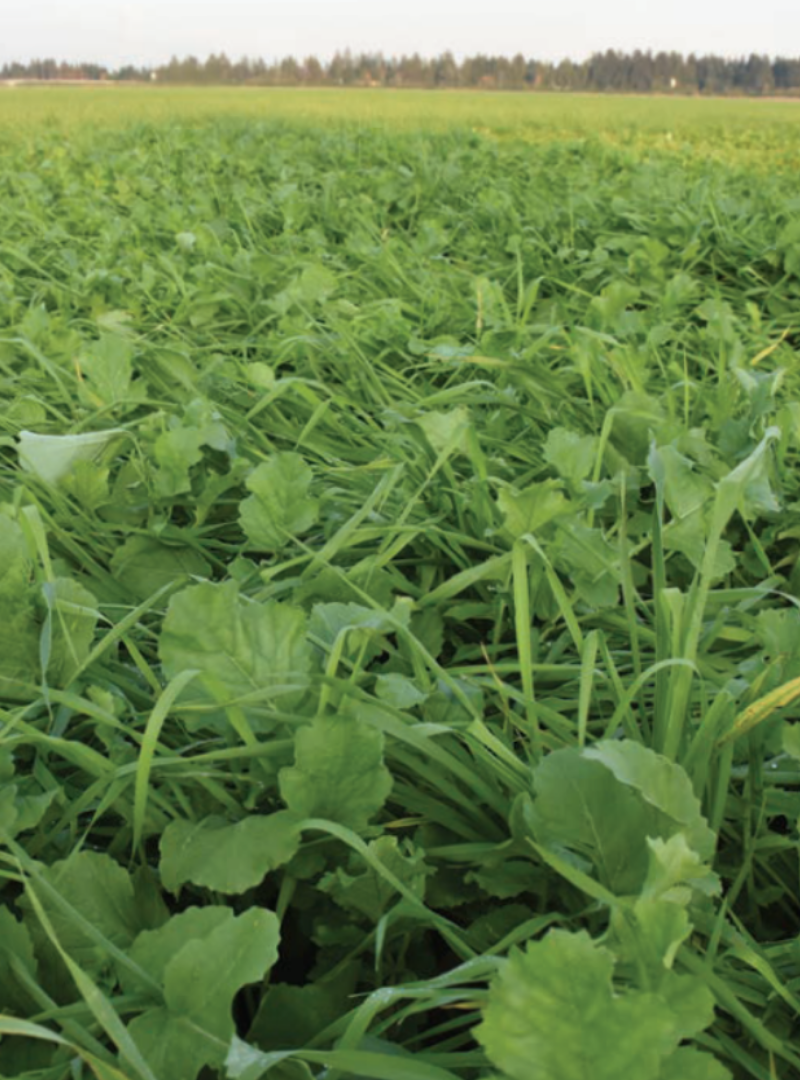
Rural Lambton Stewardship Network – Stone Cold Kennels Waterfowl Wetland Initiative 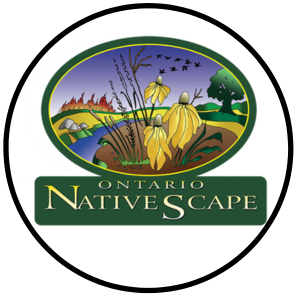
Project Accomplishments:
- Created 3.5 acres of new wetland habitat — Transformed a flood-prone area into a thriving wetland now supporting wood ducks and mallards, providing lasting habitat for wildlife and sustainable use by local hunters.
- Enhanced surrounding upland ecosystem — Planted 40 acres of tallgrass prairie adjacent to the wetland, improving biodiversity, pollinator habitat, and long-term ecological resilience.
- Delivered lasting environmental benefits — The project contributes to flood mitigation, water filtration, carbon storage, and habitat connectivity, strengthening ecosystem health and climate resilience in the region.
ALUS Middlesex – Small Wetland Creation Program on Agricultural Lands 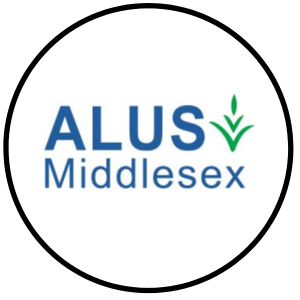
Project Accomplishments:
- Restored key habitat for waterfowl and migratory birds — Established 7 small wetlands totaling 3.22 acres of wetland and 0.94 acres of riparian habitat on marginal farmland in the Lake Erie and Thames Valley watersheds, enhancing biodiversity and ecosystem health.
- Engaged and equipped local landowners — Worked with 7 participating farmers, providing educational ALUS guidebooks and long-term conservation agreements to support wetland maintenance, monitoring, and stewardship.
- Delivered lasting water-quality and community benefits — Wetlands strategically placed near waterways now reduce nutrient runoff, improve water quality, and mitigate flooding, while strengthening community-based conservation partnerships across Southwestern Ontario.
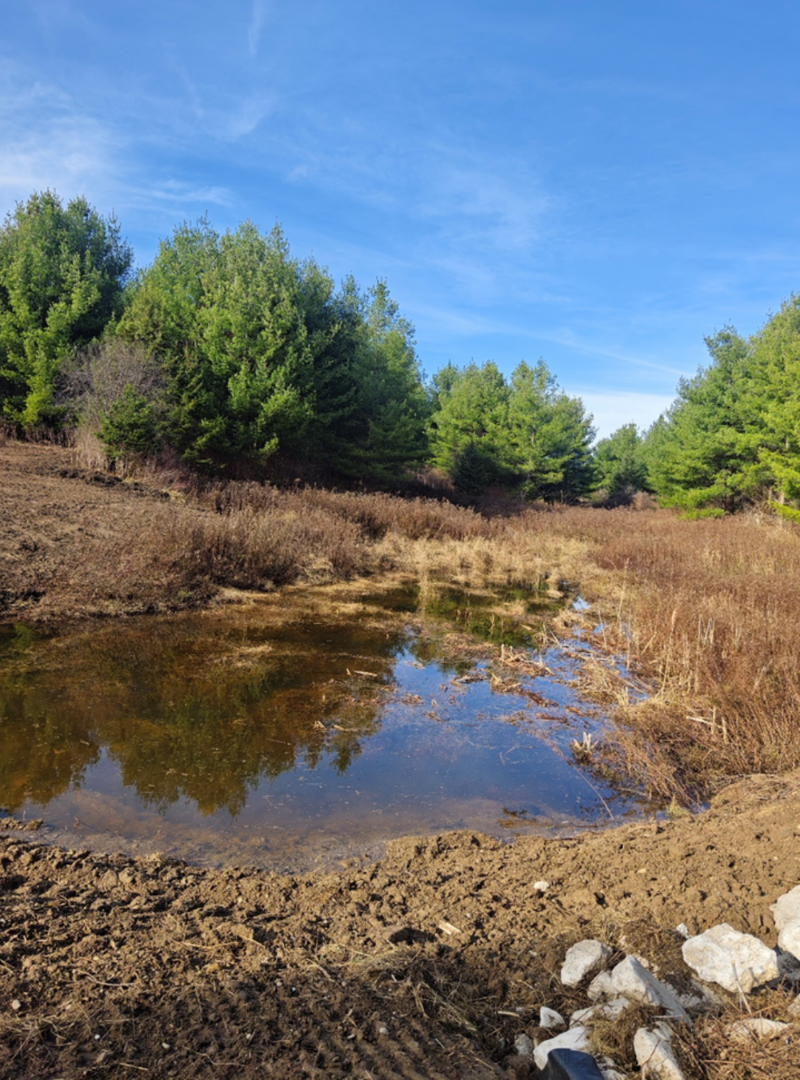
Invasive Species Centre – European Water Chestnut Rapid Response Program Year 3 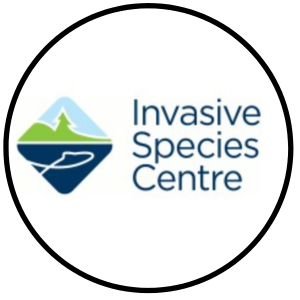
Project Accomplishments:
- Expanded monitoring and removal efforts — Increased survey range from 53 km to 63 km after confirming a new infestation site; manually removed 1,367 EWC plants, down from 7,000 in 2022, showing major population reduction.
- Enhanced data collection and invasive-species tracking — Conducted inventories for multiple invasive and native species, mapping Phragmites, Yellow Iris, Flowering Rush, Purple Loosestrife, and Japanese Knotweed, while continuing Species at Risk mussel monitoring.
- Strengthened community engagement and partnerships — Delivered 4 public outreach events, including Paddle with a Purpose tours and hunter education; engaged local paddlers, municipalities, and NPCA in ongoing stewardship and eradication support.
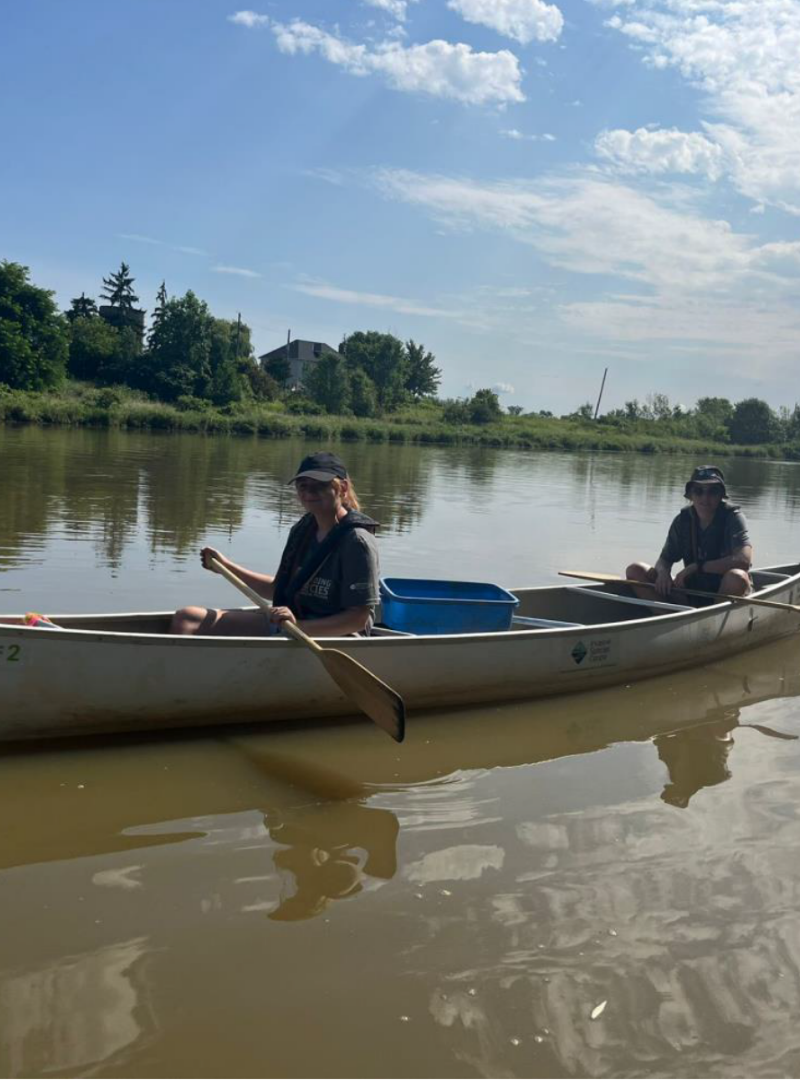
Manitoba Wildlife Federation – Becoming an Outdoors-Woman 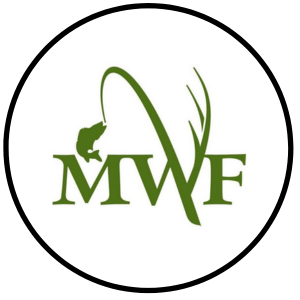
Project Accomplishments:
- Milestone Event with Broad Participation — Celebrated the 30th annual BOW program with 78 participants and 45 volunteers, offering 40+ workshops in hunting, fishing, shooting, and outdoor skills, fostering confidence and inclusion among women from across Canada.
- Expanded Skill Development and Recruitment — Introduced new workshop topics and follow-up opportunities, including mentored hunts, firearm training, and “Beyond BOW” sessions, resulting in strong participant retention and continued engagement in conservation and hunting programs.
- Continuous Program Improvement — Collected detailed participant and instructor evaluations and held debrief sessions to refine workshop quality, ensuring the BOW program remains Manitoba Wildlife Federation’s most effective recruitment and leadership development tool for women in the outdoors.
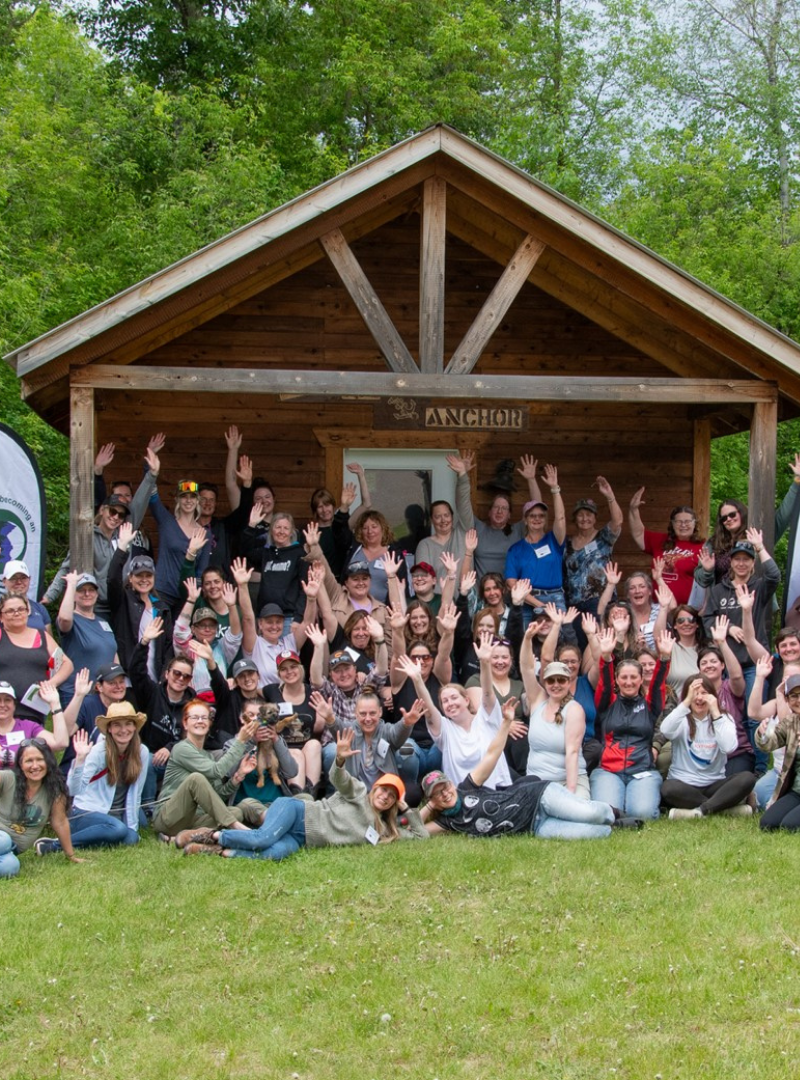
Delta Waterfowl – Expanding the Canadian Waterfowl Population and Conservation Efforts Through Delta Waterfowl’s University Hunting and First Hunt Programs 
Project Accomplishments:
- Expanded National Reach — Partnered with 28 post-secondary institutions across Canada, engaging wildlife and natural resource students from British Columbia to Newfoundland in hands-on conservation and hunting education.
- Educated Future Conservation Leaders — Provided experiential learning opportunities that connected wildlife management students—many new to hunting—to the ecological and financial role hunters play in sustaining conservation efforts.
- Advanced Hunter Recruitment and Retention — Delivered mentored hunts and outreach events to inspire new participants, helping counter declining hunter numbers and strengthening the long-term conservation funding base.
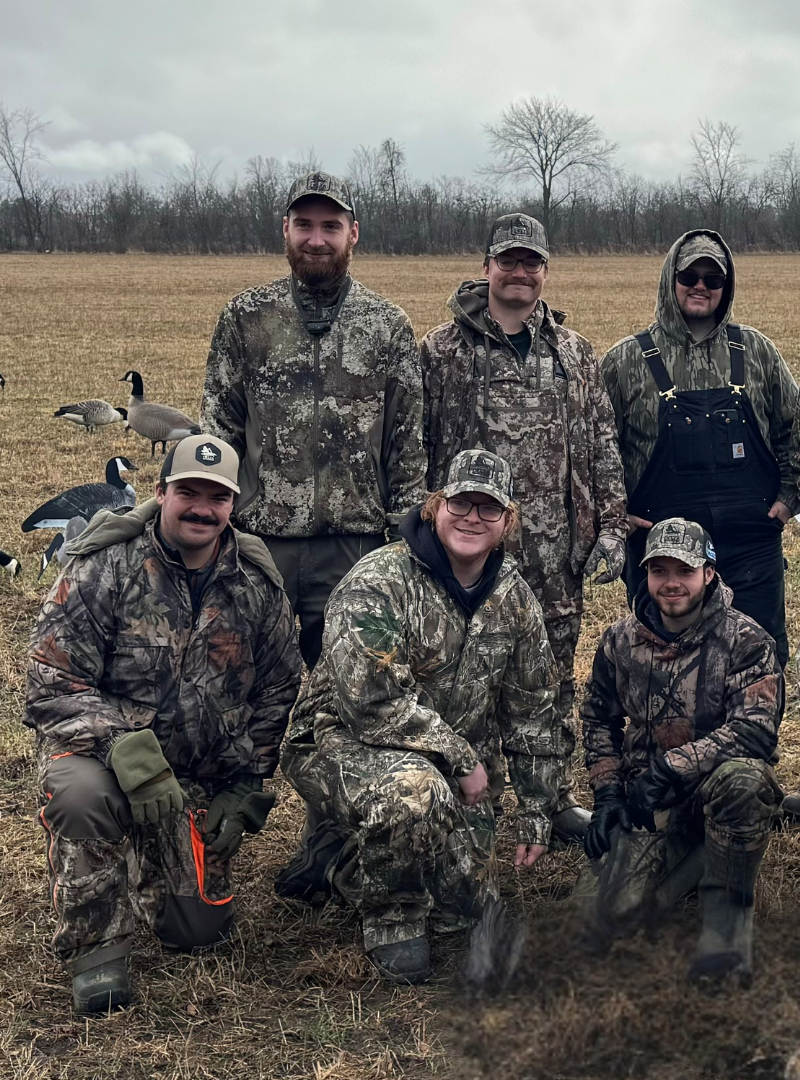
Alberta Hunter Education Instructor’s Association – AHEIA’s Conservation Education Programs 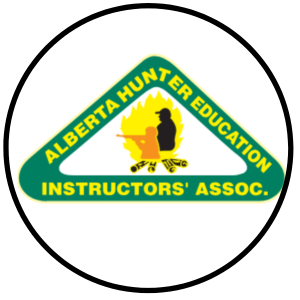
Project Accomplishments:
- Major Milestone in Conservation Education — Celebrated 60 years of delivering hunter and conservation education, surpassing 2.7 million graduates across Alberta and 100,000 new participants in 2024 alone, ensuring generations of safe, ethical, and conservation-minded hunters.
- Expanded Training and Mentorship — Hosted hands-on learning for 10,000 participants at the Alford Lake Centre and over 35,000 graduates from the Canadian Firearms Safety Course; mentored 106 novice hunters through waterfowl hunting programs with 76 mentors.
- Leadership in Inclusivity and Outreach — Continued the Outdoor Women’s Program (31st year) and youth engagement initiatives, supported by 3,600 volunteer instructors, fostering broad participation and sustained growth in Alberta’s hunting and conservation community.
Ducks Unlimited Canada – Innovation in Wetland Conservation Leadership Training 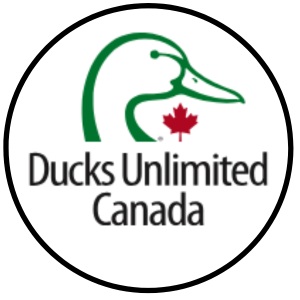
Project Accomplishments:
- Hands-On Wetland Science & Conservation Training — Engaged Canadian youth (ages 18–25) through immersive fieldwork in Manitoba’s Prairie Pothole Region, combining wetland ecology, waterfowl ID, and citizen science with practical skills in monitoring and restoration.
- Leadership & Career Development — Youth advisory members and campus club participants received mentorship, attended national conservation events, and built networks with DUC leaders—many advancing into conservation careers or founding new campus clubs.
- Youth-Led Stewardship in Action — Participants applied their learning through community projects such as nest box building, wetland cleanups, and outreach events, fostering lasting stewardship and expanding youth-driven conservation impact across Canada.
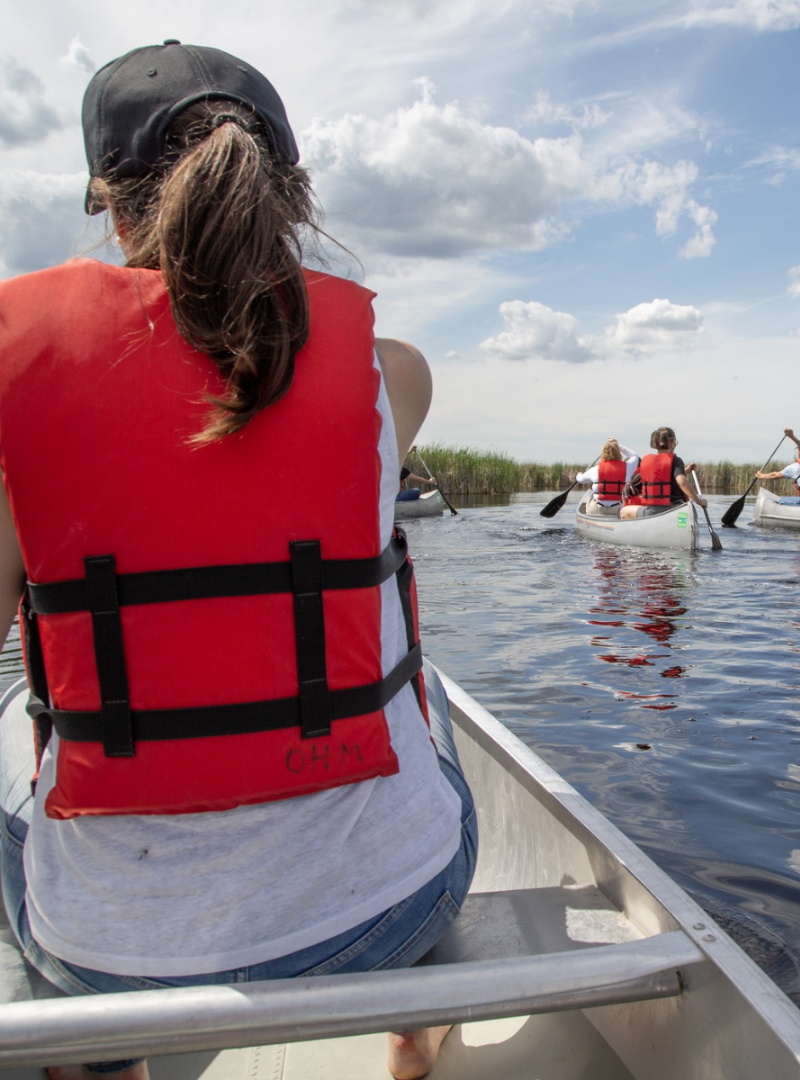
Friends of Salmonier Nature Park – Newfoundland & Labrador Inclusion and Outdoor Involvement and Investment 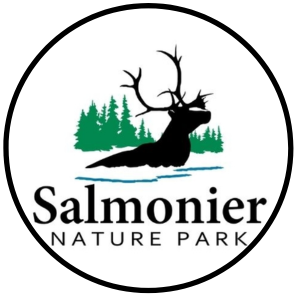
Project Accomplishments:
- Expanded Participation and Program Success — Delivered two highly successful Becoming an Outdoors Woman (BOW) weekends at a new central NL site, exceeding attendance goals and introducing hundreds of women to new outdoor and shooting skills.
- Youth and Family Engagement — Hosted Youth Hunter Skills workshops for ages 12–17 and Becoming an Outdoors Family sessions for newcomers and families, fostering safe, hands-on learning and appreciation for wildlife and wetland ecosystems.
- Inclusive and Culturally Meaningful Outreach — Offered Taste of BOW programming for Indigenous communities, including families from the Missing & Murdered Families Wellness Gathering, promoting healing, connection, and confidence through shared outdoor experiences.
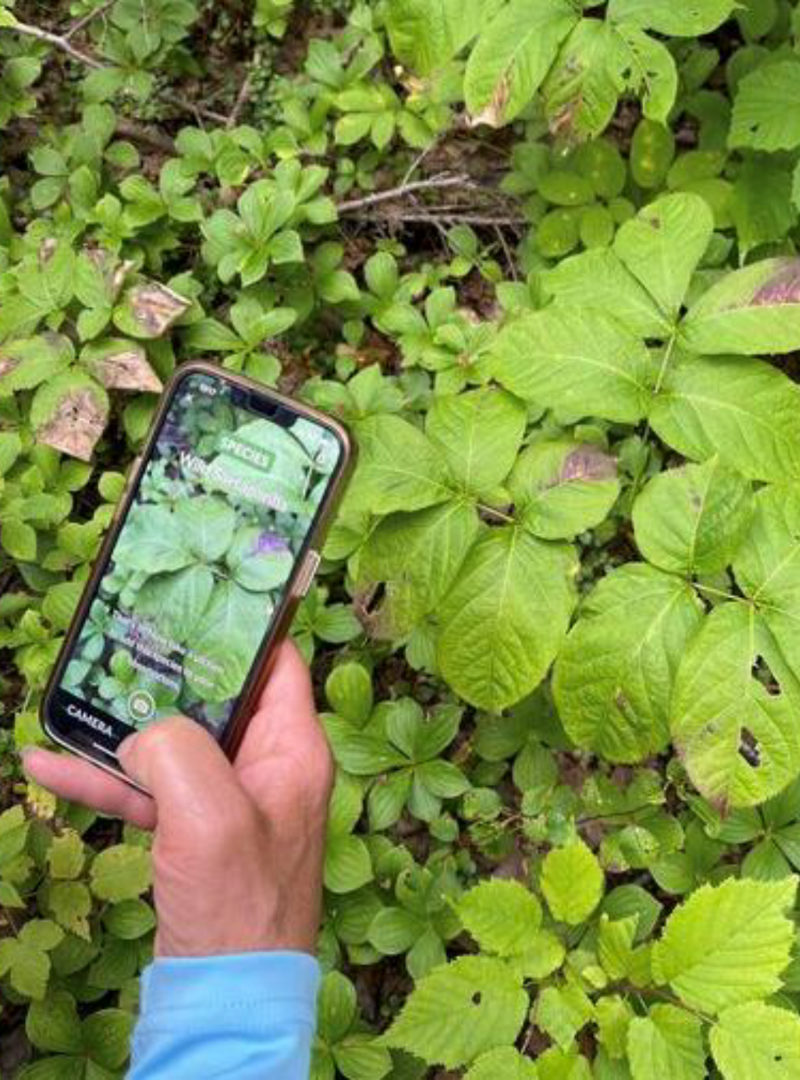
Intervale Associates Inc – Workshops on Waterfowl and EHJV Priority Bird Species on the Newfoundland Great Northern Peninsula and Southern Labrador 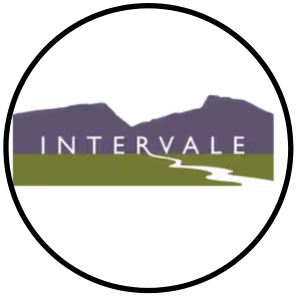
Project Accomplishments:
- Expanded Community Conservation Education — Delivered seven workshops across Newfoundland’s Great Northern Peninsula and Southern Labrador, engaging hunting families, youth, and landowners on bird identification, habitat conservation, and sustainable hunting practices.
- Empowered Youth Leadership in Conservation — Youth participants contributed to Point Amour Lighthouse’s designation as a Key Biodiversity Area, demonstrating lasting knowledge and pride in conservation through continued engagement and community presentations.
- Strengthened Regional Stewardship Networks — Built strong partnerships with municipalities, schools, and local organizations, inspiring long-term community involvement and new conservation and tourism initiatives across the Strait of Belle Isle region.
Birds Canada – Marsh Watch and the Marsh Monitoring Program – Engaging the Public with Wetland Biodiversity and Prairie Wetland Types 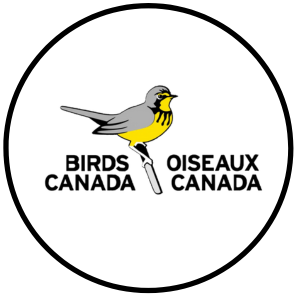
Project Accomplishments:
- Expanded Participation and Reach — Registration grew from 237 to 297 participants, with a 2.7× increase in live webinar attendance and over 2,000 combined video views, showing strong engagement and accessibility through online learning.
- Hands-On Public Engagement — Delivered guided wetland walks across Saskatchewan and Manitoba, engaging communities in bird and amphibian identification while promoting stewardship through field-based experiences.
- Citizen Science Contributions — Participants submitted species checklists for 105 wetlands, helping fill key knowledge gaps on marsh-breeding birds and advancing monitoring efforts aligned with PHJV and NAWMP conservation objectives.
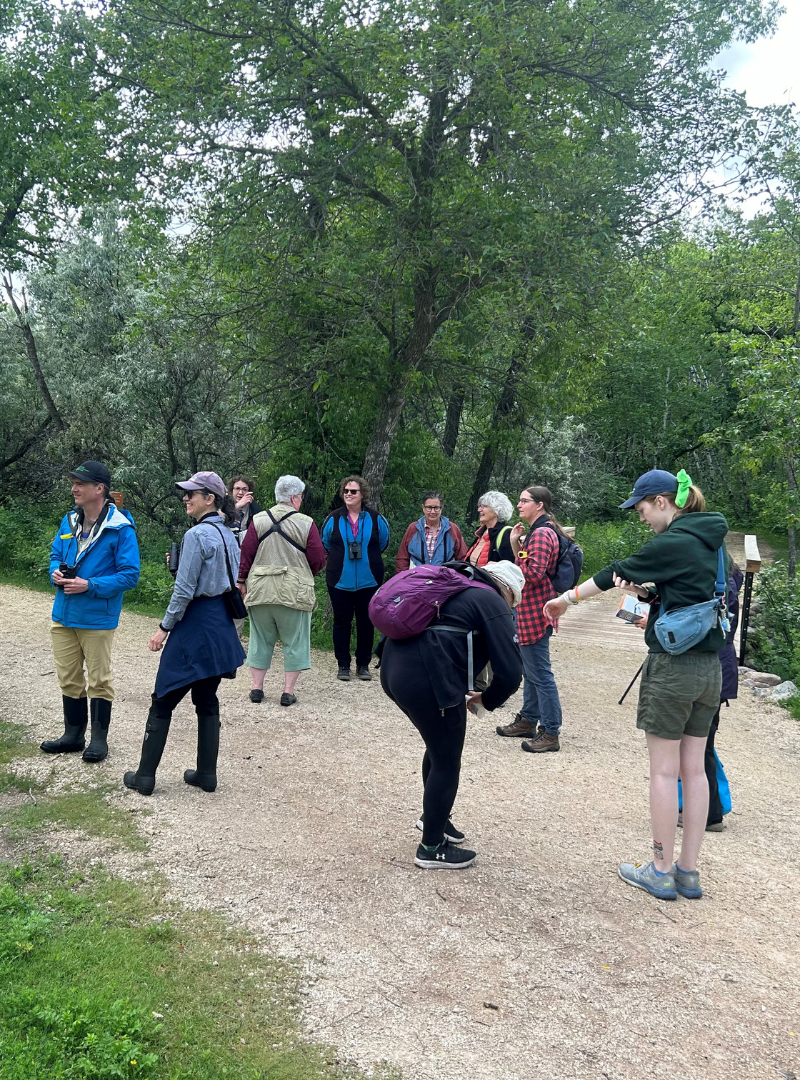
BC Wildlife Federation – BCWF Youth Programs: Inspiring Tomorrow’s Conservation Leaders in the Great Outdoors 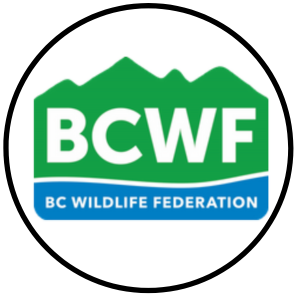
Project Accomplishments:
- Expanded Youth Engagement Across B.C. — Reached 165 youth through six Wild Kidz and Go Wild summer camps, plus over 8,000 participants through school programs, Fishing Forever, Learn to Hunt Academy, and Gently Down the Seymour.
- Leadership and Conservation Impact — Delivered over 45 conservation education programs, involving invasive species removal, pollinator workshops, and habitat restoration, empowering youth to become future conservation leaders.
- Hunter and Archery Recruitment Success — Trained 82 new archery instructors, reached 6,691 youth through NASP B.C., and hosted a provincial tournament for 131 archers, fostering safe, positive introduction to firearms, archery, and outdoor ethics.
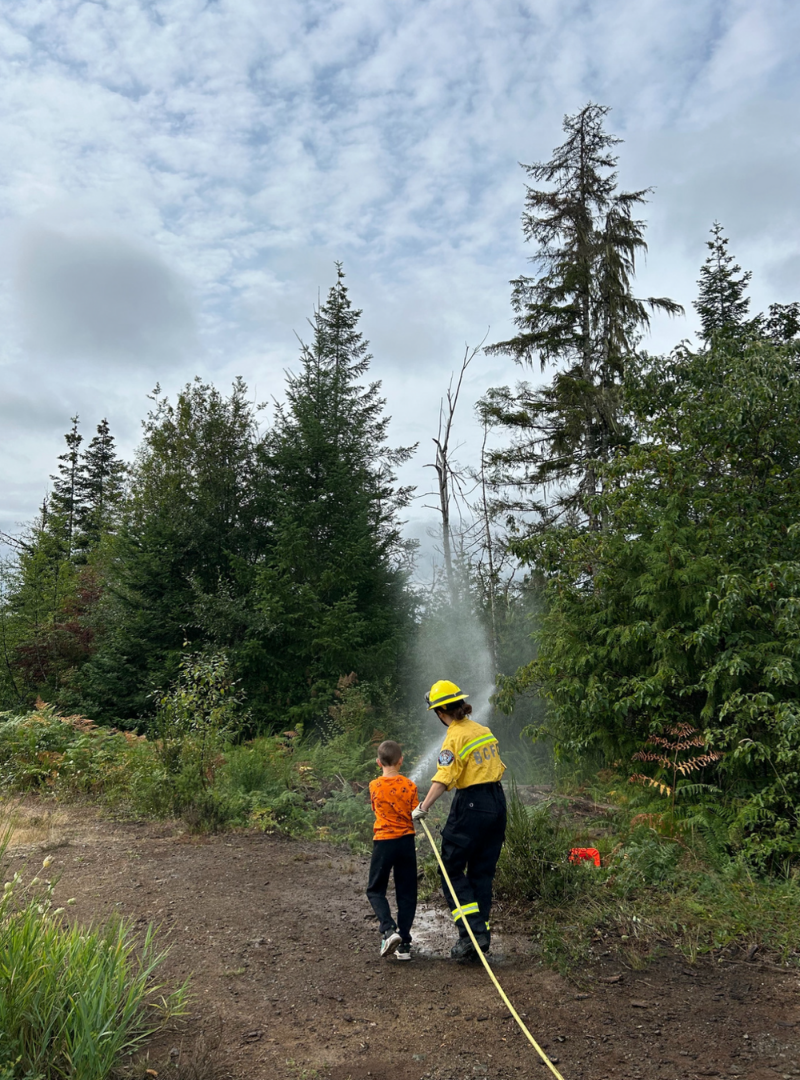
Sackville Rod and Gun Club – 2024 SENB Youth Waterfowl Workshop and Mentored Hunt 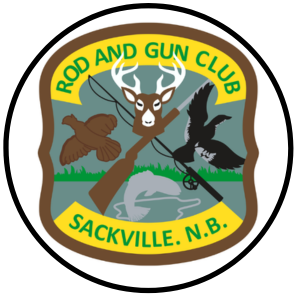
Project Accomplishments:
- Youth Engagement and Education — Introduced 29 youth over two years to safe, ethical migratory bird hunting, many experiencing their first-ever hunt, through hands-on instruction led by certified conservation professionals.
- Community and Family Impact — Reached dozens of families annually, fostering respect for wildlife, landowners, and hunting traditions while strengthening community bonds around outdoor heritage.
- Growing Conservation Stewardship — Built strong partnerships with Wildlife Habitat Canada, Ducks Unlimited, local enforcement, and municipalities, helping reverse the decline in hunter participation and reinforcing hunting’s role in funding and supporting wildlife conservation.
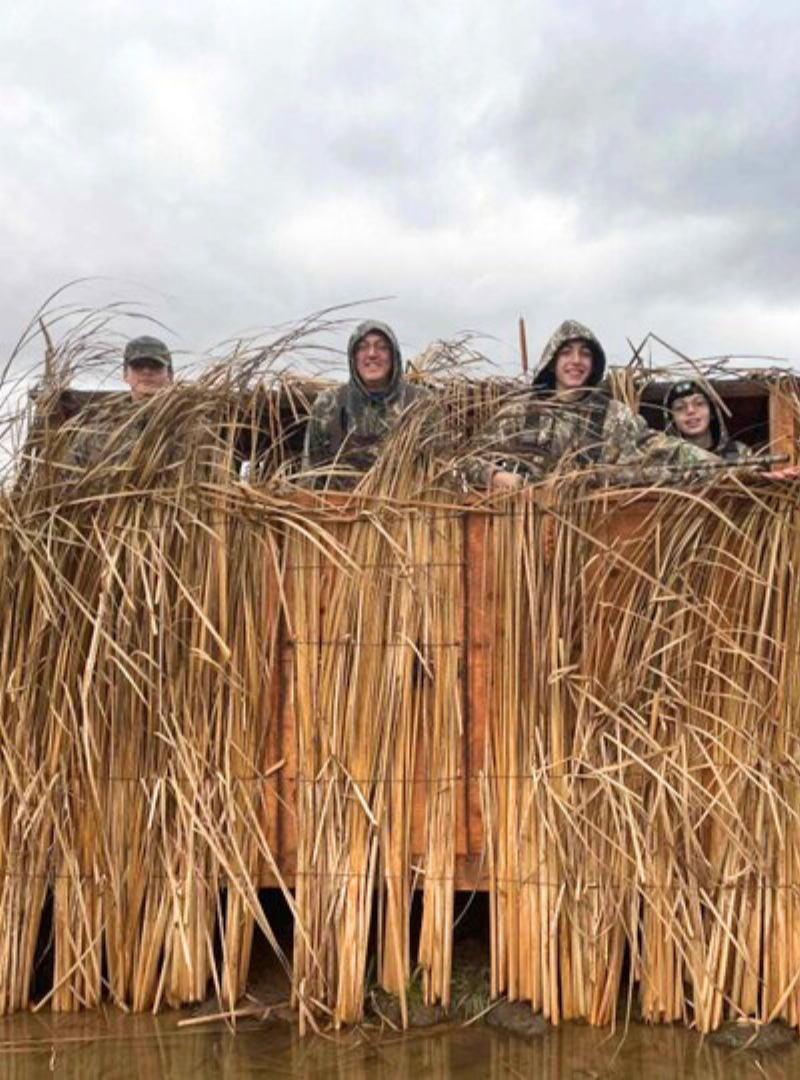
BC Wildlife Federation – Wetlands on Wheels 2024-25: Advancing Conservation, Stewardship, & Restoration Capacity in BC 
Project Accomplishments:
- Provincial Reach and Engagement — Delivered 6 stewardship workshops, 3 webinars, and 13 outreach events, engaging 2,122 participants across British Columbia, including landowners, First Nations, and conservation professionals.
- Hands-On Conservation and Restoration — Restored 14.2 acres of wetland habitat across two sites while training participants in mapping, vegetation monitoring, invasive species control, and restoration design.
- Capacity Building and Climate Resilience — Strengthened community ability to identify, assess, and conserve wetlands, enhancing climate resilience, flood mitigation, and long-term stewardship through education and skill development.
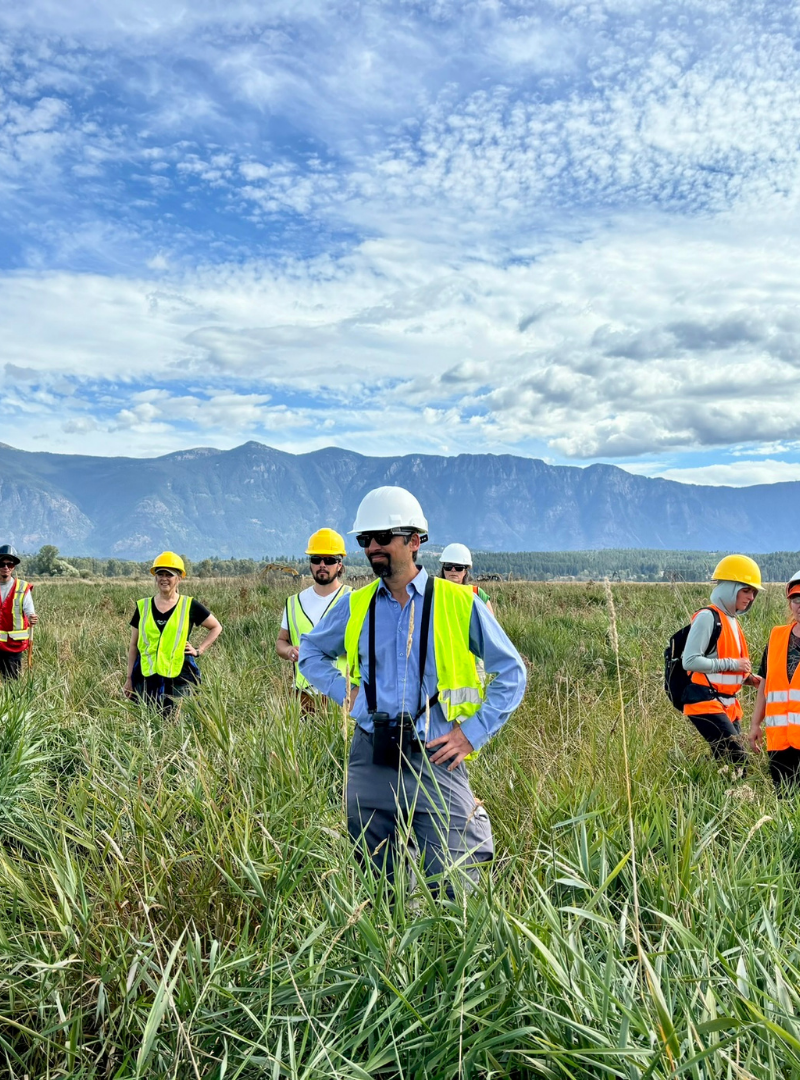
Birds Canada – Ontario-wide Marshbird Science and Monitoring for All-Bird Conservation: Year 3 
Project Accomplishments:
- Exceeded Survey Targets — Completed 112 survey squares (27 above target), bringing the total to 393 squares across Ontario—surpassing the 5-year project goal and producing a robust dataset for marshbird conservation planning.
- Expanded Outreach and Engagement — Reached over 745 people through articles, presentations, and volunteer training; 335 volunteers surveyed 943 monitoring stations, engaging 55 landowners in wetland conservation.
- Advanced Conservation Science — Published 4 peer-reviewed papers, long-term species indices for 28 marsh birds and frogs, and contributed data to State of the Great Lakes reporting, directly supporting OEHJV and EHJV habitat and population objectives.
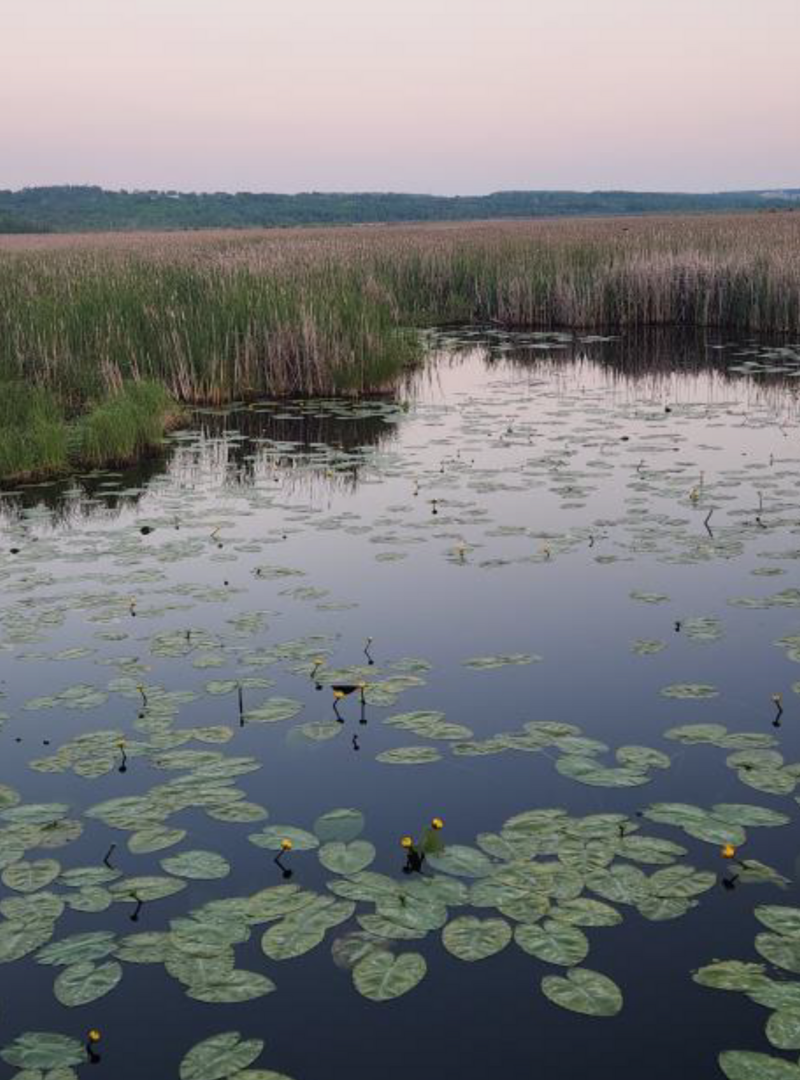
University of Alberta – Documenting Canadian Joint Venture human dimensions research to support wetland and waterfowl conservation: Knowledge mobilization and decision-making support 
Project Accomplishments:
- Research Advancement and Publications — Made substantial progress on three key papers (wetland value orientations, recreation specialization, and agricultural producer perspectives), finalized the Canada–US birder choice experiment paper for submission, and published one peer-reviewed article in FACETS.
- Knowledge Sharing and Engagement — Presented research at the 2025 Alberta Chapter of The Wildlife Society Conference and prepared materials for PHJV webinars and public-facing infographics to share findings with conservation partners.
- Support for NAWMP Goal 3 Implementation — Provided actionable insights on Canadians’ attitudes, recreation behaviours, and support for wetland conservation, strengthening the Joint Ventures’ capacity to engage citizens, hunters, and conservationists in long-term habitat protection.
Acadia University – Plastic ingestion and diet change in murres from Newfoundland 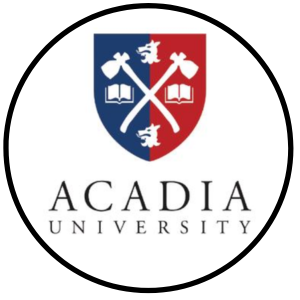
Project Accomplishments:
- Comprehensive Sample Collection and Analysis — Processed 403 murre digestive tracts (2017–2024) with quantified data from 293 samples, revealing <10% plastic ingestion (consistent with historical trends) and confirming Capelin and marine invertebrates as dominant diet items.
- Capacity Building and Engagement — Delivered 7 Seabird Dissection Workshops engaging 157 participants, including undergraduate and graduate students, providing hands-on conservation and lab experience; fostered collaboration with 9 local hunters and ECCC scientists for specimen collection.
- Expanded Research Contributions — Supported multiple related studies through shared samples (avian influenza, contaminants, isotopes) and strengthened long-term seabird datasets, enhancing understanding of marine ecosystem stressors and informing future policy and conservation decisions.
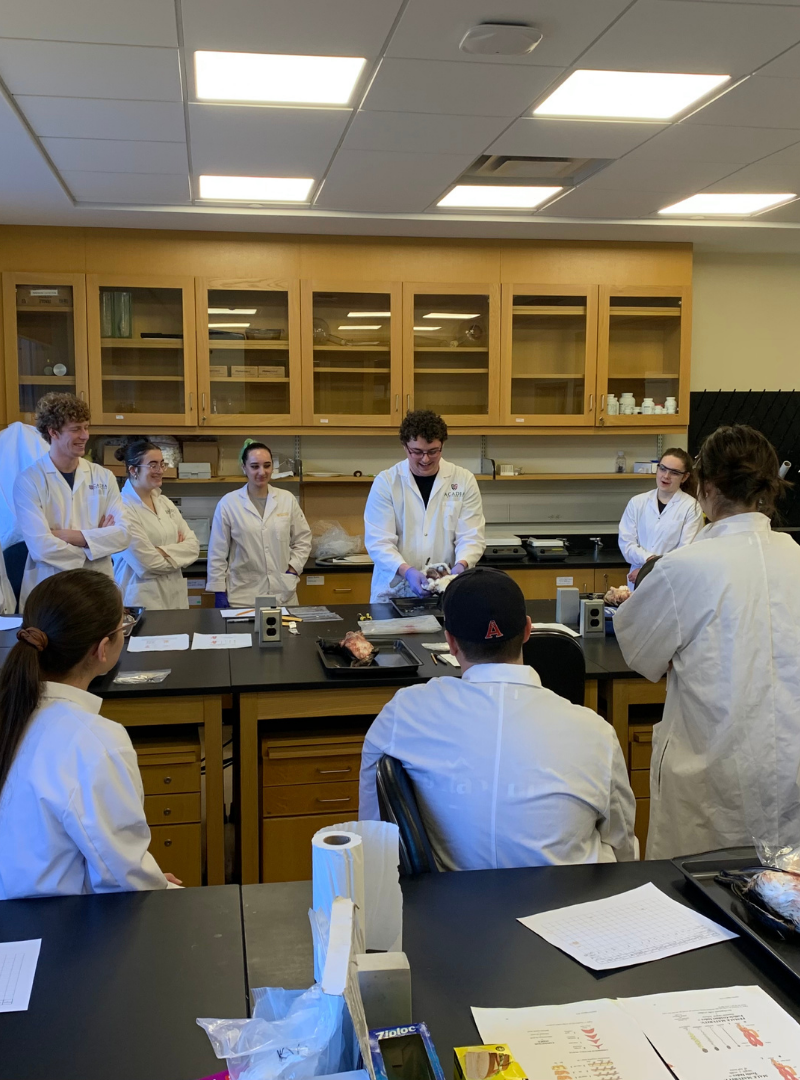
WHC Stamp Projects Across Canada
At WHC, we believe in the fundamental importance of wildlife habitats that are abundant, rich and support biodiversity.
As a result, we fund projects that are making headway in conservation initiatives in habitat management, conservation networking and wildlife research.
Every year we send out a call for applications for conservation groups to submit their requests for funding. Our project timeline coincides with the fiscal year (April 1 to March 31).
Questions? Get in Touch
Seeking assistance? Navigate to our contact page to connect with a dedicated staff member directly or utilize our general inquiries or toll-free lines for prompt support.
